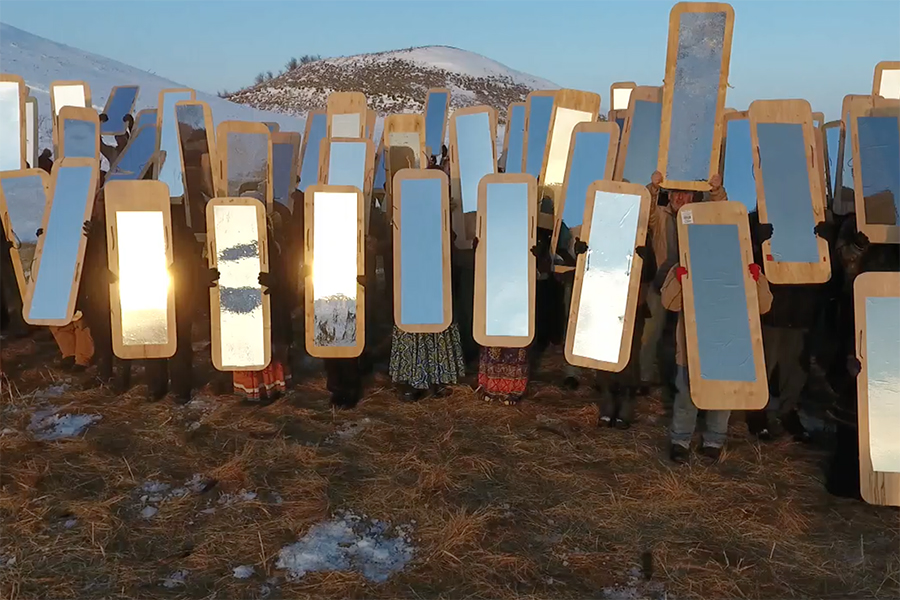
Artwork focused on water rights and access is the inspiration for a new exhibition this fall at the Florida State University Museum of Fine Arts.
The exhibition, “A Shared Body,” was curated by Meredith Lynn, assistant curator and director of galleries at MoFA, and Annie Booth, the museum’s director of programs. It opens Aug. 23 and runs through Dec. 11.
“Water protection and management is one of the most pressing issues for the future of Florida, and the current students of FSU are going to be leaders of the environmental, social and political movements that will ensure our state is still here in 100 years,” Lynn said. “At MoFA, we have seen first-hand that art can inspire an open, nuanced conversation.”
“A Shared Body” is MoFA’s latest exhibition dealing with environmental issues. In 2020, the museum hosted “Rising Water,” a show of artists who have been impacted by hurricanes.
In this new exhibition, artists are considering water access as both a human and civil right. With subject matter ranging from the Middle Passage to Flint, Michigan, and the Dakota Access Pipeline, the exhibition specifically focuses on the impact of water access to Black and Indigenous communities.
“It is an exciting moment to share these incredible artists with our audiences,” Booth said. “All of the artworks start a larger conversation about the complexity of water protection.”
The exhibition features seven contemporary artists, including Pope.L, Calida Garcia Rawles and Courtney M. Leonard.
Leonard, an interdisciplinary artist, designs site-specific installations to create a sensory experience built on memory.
“Exploring themes of water access, rights and preservation, she brings Native knowledge of water filtration and transportation systems into the forefront with red clay pipes, oyster shells, video projection and color, asking the visitor to consider her perspective as a Shinnecock woman,” Booth said.
Included in “A Shared Body” is MoFA’s most recent acquisition, “Flint Water” by Pope.L, one of the most influential artists working today, according to Lynn.
“By turning bottles of Flint tap water into art objects, he speaks to issues of equity and justice that resonate on our campus,” she said. “We are thrilled that future FSU students will engage with this work as part of MoFA’s Permanent Collection. The expansion and diversification of MoFA’s collections have been among our primary goals over the past several years, and this acquisition is a significant step for the museum.”
MoFA is always free and open to the public. For more information on hours, programs and special events, visit www.mofa.fsu.edu.





